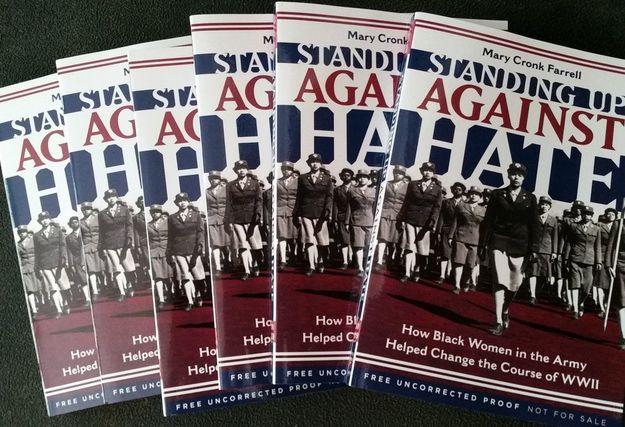|
I've got a terrific love story for you today, but first, exciting news. Advanced Review Copies of Standing Up Against Hate arrived! Known in the biz as ARCs, these are cheap, paperback, uncorrected proofs of the book, which comes out in January. From the book jacket: "Standing Up Against Hate offers a much-need perspective on the lives of women of color during wartime America." Marcia M. Anderson, U.S. Army (Ret.) It tells the stories of African American women who enlisted in the newly formed Women’s Army Auxiliary Corps (WAAC) in World War II. They faced as many obstacles in the armed forces as they did in everyday life, but they survived racial prejudice and discrimination with dignity, succeeded in jobs women had never worked before, and made crucial contributions to the military war effort. The Power of Love Stands Against Hate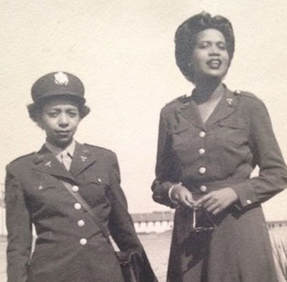 Elinor Powell (right) with a fellow nurse at POW Camp Florence in Arizona, circa 1944-1945. Elinor Powell (right) with a fellow nurse at POW Camp Florence in Arizona, circa 1944-1945. Today's featured story is about an African American woman who served in the Army Nurse Corps. She had the extraordinary courage to stand against hate in the most personal way, all day every day. Elinor Powell fell in love with a German POW and chose him, for better or worse, knowing their interracial marriage was against the law in 29 states. Elinor grew up near Boston, in a small town that was integrated. She played with white children, went to school with them and never saw a drinking fountain labeled “White’s Only”. (Photo courtesy Smithsonian Magazine and Chris Albert) When America called for nurses during WWII, Elinor wanted to serve her country. But the segregated Army Nurse Corps came as quite a shock. Elinor deployed to Camp Florence, near Phoenix, Arizona, where her army uniform did not exempt her from Jim Crow laws. Off base, Elinor was refused service at a Woolworth's lunch counter. On base, she suffered further indignity, forced to tend German POWs, soldiers from the army gobbling up territory to expand Hitler’s white supremacist regime. Some POWs called the black nurses derogatory names, and the U.S. Army wasn't a whole lot better. There was a shortage of nurses to treat American wounded, but hundreds of black nurses were turned away. Elinor wanted to use her skills to aid men who'd been wounded fighting the Nazis. The Army posted her to the Arizona desert at a hospital for German POWs that rarely needed medical care. 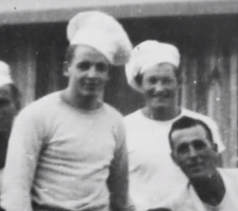 One day, Elinor walked into the mess hall for a meal and was approached by one of the German men. Frederick Albert was a baker in the kitchen and when he saw Elinor, it was love at first sight. He walked up and introduced himself. "You should know my name. I'm the man who's going to marry you." I imagine Elinor wasn't moved at the moment, she may even have suspected she was the butt of a joke. But Frederick didn't hold with Nazi doctrine. Like many German soldiers, he'd been drafted and forced to serve in the military. And he was a persistent man. He volunteered to work at the hospital. He organized baking classes and Elinor attended. She saw that he was kind and he made her feel desirable. Soon they were meeting in secret. Enemies in love. 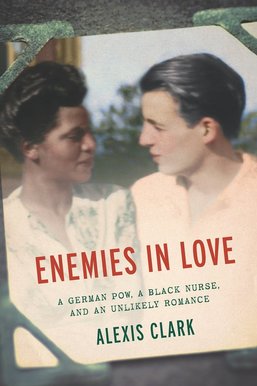 Their love story is told in a new book by Alexis Clark. It's not all sunshine and roses. Fredrick was caught sneaking our of Elinor's barracks and punished with a beating. Not because he was a POW consorting with an American, because he was a white man dating a black woman. According to the publisher, Enemies in Love " paints a tableau of dreams deferred and of love struggling to survive, twenty-five years before the Supreme Court's Loving decision legalizing mixed-race marriage—revealing the surprising possibilities for human connection in one of history’s most violent conflicts." You could understand how this romance might fade away when the war ended and Frederick was shipped home to German. But these two concocted a daring plan. They got pregnant, hoping that would help Frederick get a visa to come back to the States. Elinor hid her pregnancy until she was discharged from the Army, then went home to her proper family in her proper New England town. Her mother wasn't happy. Honestly, I can't blame her for thinking her daughter was being duped by a cad who might never return, and if he did, might just want a green card, not a biracial family. But Frederick was true. He got permission to return to the U.S. and the couple married. Initially, they moved to Germany settling with Frederick's wealthy family where he was poised to take over his father's engineering company. But Frederick's mother wouldn't accept her African American daughter-in-law, and treated her rudely. The townspeople didn't take to Elinor, either. Author Alexis Clark told NPR, "People were pointing, taunting her when she was walking down the street. She remembers that a man dropped his groceries when he saw her and the fruit just rolled down the lane. He couldn't believe it! She said she felt like an animal in a zoo. And so the family moved back to New England, where their troubles continued. 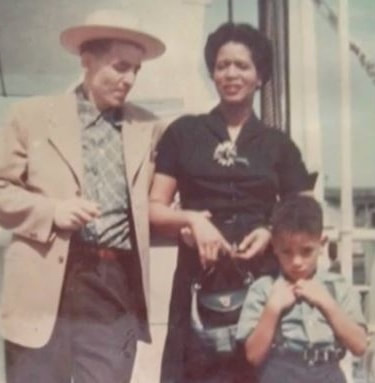 Frederick and Elinor Albert & son, Chris. Courtesy Soledad O'Brien, Matter of Fact Frederick and Elinor Albert & son, Chris. Courtesy Soledad O'Brien, Matter of Fact Frederick had trouble finding jobs because he was German. They had trouble finding a place to live because Elinor was black. But their love persevered. Eventually, they discovered a place where people had consciously chosen to live in an integrated community. They made a home in South Norwalk, Connecticut, where a diversity of mixed-race couples, Jewish families, gays and other misfits of post-war America were welcome. Pepperidge Farms baking company was located in Norwalk, and I knew there was a reason I love those cookies! The company, founded by a woman during the Depression, hired Frederick as a baker. Comments are closed.
|
I'm fascinated to discover little-known history, stories of people and events that provide a new perspective on why and how things happened, new voices that haven't been heard, insight into how the past brought us here today, and how it might guide us to a better future.
I also post here about my books and feature other authors and their books on compelling and important historical topics. Occasionally, I share what makes me happy, pictures of my garden, recipes I've made, events I've attended, people I've met. I'm always happy to hear from readers in the blog comments, by email or social media. Archives
September 2023
Categories
All
|
